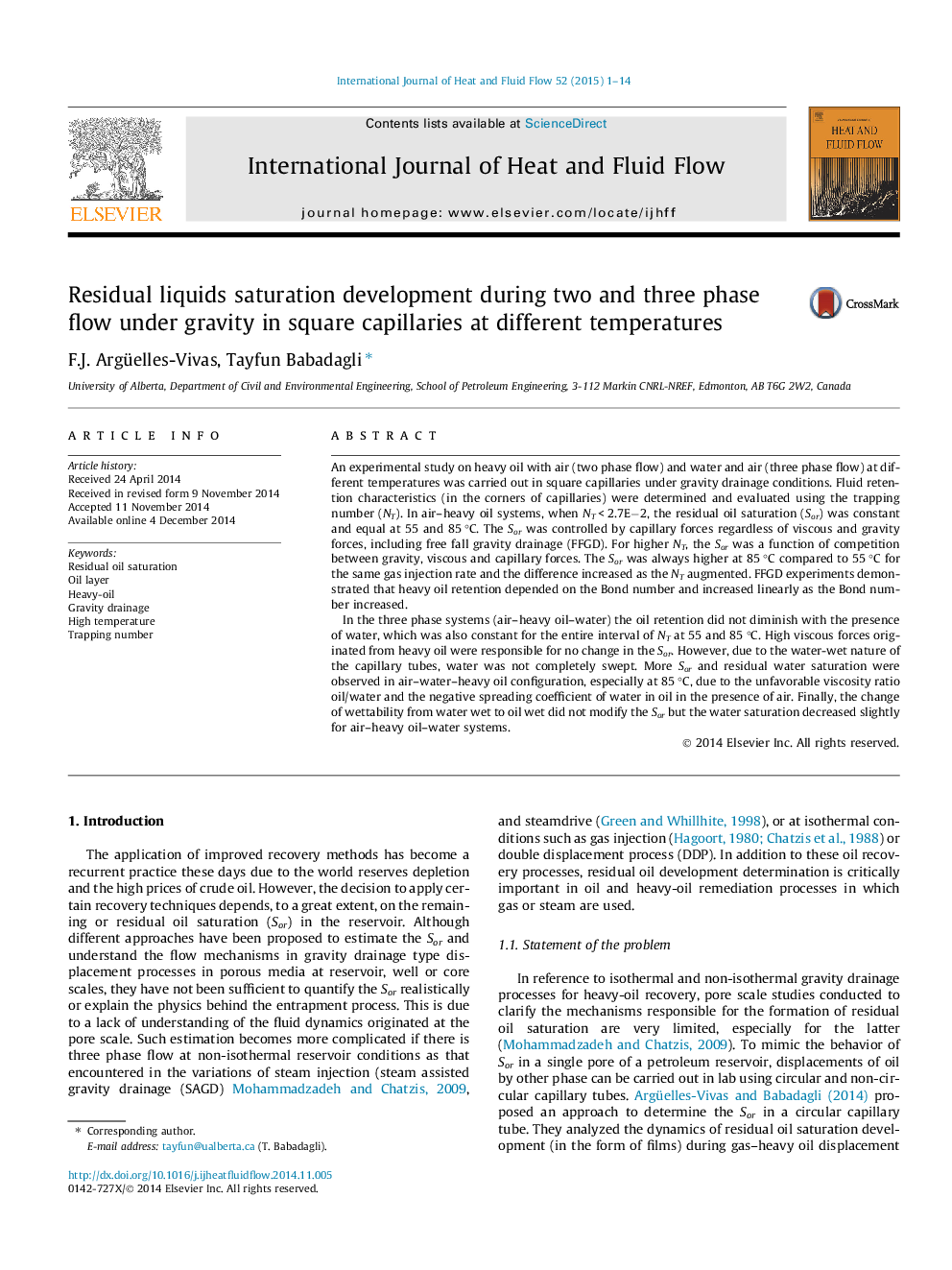| Article ID | Journal | Published Year | Pages | File Type |
|---|---|---|---|---|
| 655115 | International Journal of Heat and Fluid Flow | 2015 | 14 Pages |
•Residual liquid saturations under gravity at different temperatures were analyzed.•If NT < 2.7E−2, residual oil saturation (Sor) was independent of viscous/gravity forces.•At T = 55 and 85 °C, the initial water saturation did not affect the amount of retained oil.•An empirical correlation for Sor was developed for free-fall gravity drainage.•This data will be useful in the assessment of thermal heavy-oil recovery applications.
An experimental study on heavy oil with air (two phase flow) and water and air (three phase flow) at different temperatures was carried out in square capillaries under gravity drainage conditions. Fluid retention characteristics (in the corners of capillaries) were determined and evaluated using the trapping number (NT). In air–heavy oil systems, when NT < 2.7E−2, the residual oil saturation (Sor) was constant and equal at 55 and 85 °C. The Sor was controlled by capillary forces regardless of viscous and gravity forces, including free fall gravity drainage (FFGD). For higher NT, the Sor was a function of competition between gravity, viscous and capillary forces. The Sor was always higher at 85 °C compared to 55 °C for the same gas injection rate and the difference increased as the NT augmented. FFGD experiments demonstrated that heavy oil retention depended on the Bond number and increased linearly as the Bond number increased.In the three phase systems (air–heavy oil–water) the oil retention did not diminish with the presence of water, which was also constant for the entire interval of NT at 55 and 85 °C. High viscous forces originated from heavy oil were responsible for no change in the Sor. However, due to the water-wet nature of the capillary tubes, water was not completely swept. More Sor and residual water saturation were observed in air–water–heavy oil configuration, especially at 85 °C, due to the unfavorable viscosity ratio oil/water and the negative spreading coefficient of water in oil in the presence of air. Finally, the change of wettability from water wet to oil wet did not modify the Sor but the water saturation decreased slightly for air–heavy oil–water systems.
